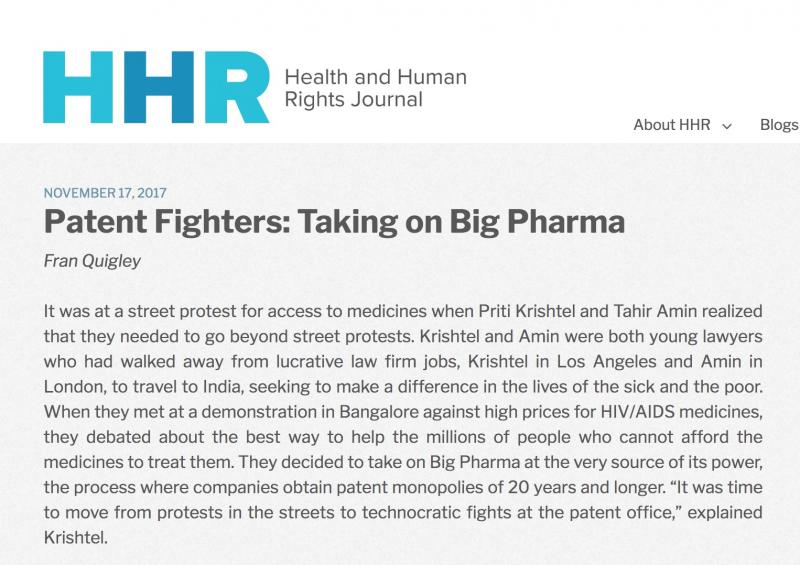
This article by PFAM coordinator Fran Quigley was published in the Health and Human Rights Journal. To see the article at its original source, with reference sources hyperlinked, click here.
It was at a street protest for access to medicines when Priti Krishtel and Tahir Amin realized that they needed to go beyond street protests. Krishtel and Amin were both young lawyers who had walked away from lucrative law firm jobs, Krishtel in Los Angeles and Amin in London, to travel to India, seeking to make a difference in the lives of the sick and the poor. When they met at a demonstration in Bangalore against high prices for HIV/AIDS medicines, they debated about the best way to help the millions of people who cannot afford the medicines to treat them. They decided to take on Big Pharma at the very source of its power, the process where companies obtain patent monopolies of 20 years and longer. “It was time to move from protests in the streets to technocratic fights at the patent office,” explained Krishtel.
Patents keep generic alternatives off the market. Monopoly prices of essential medicines usually stay high as long as the patents last. For example, the groundbreaking hepatitis C treatment, sofosbuvir, is manufactured at a cost of about $1 per pill, but that single pill is sold by its patent-holder Gilead Sciences at prices as high as $1,000. When generic medicines enter the market, medicine prices can drop dramatically...
